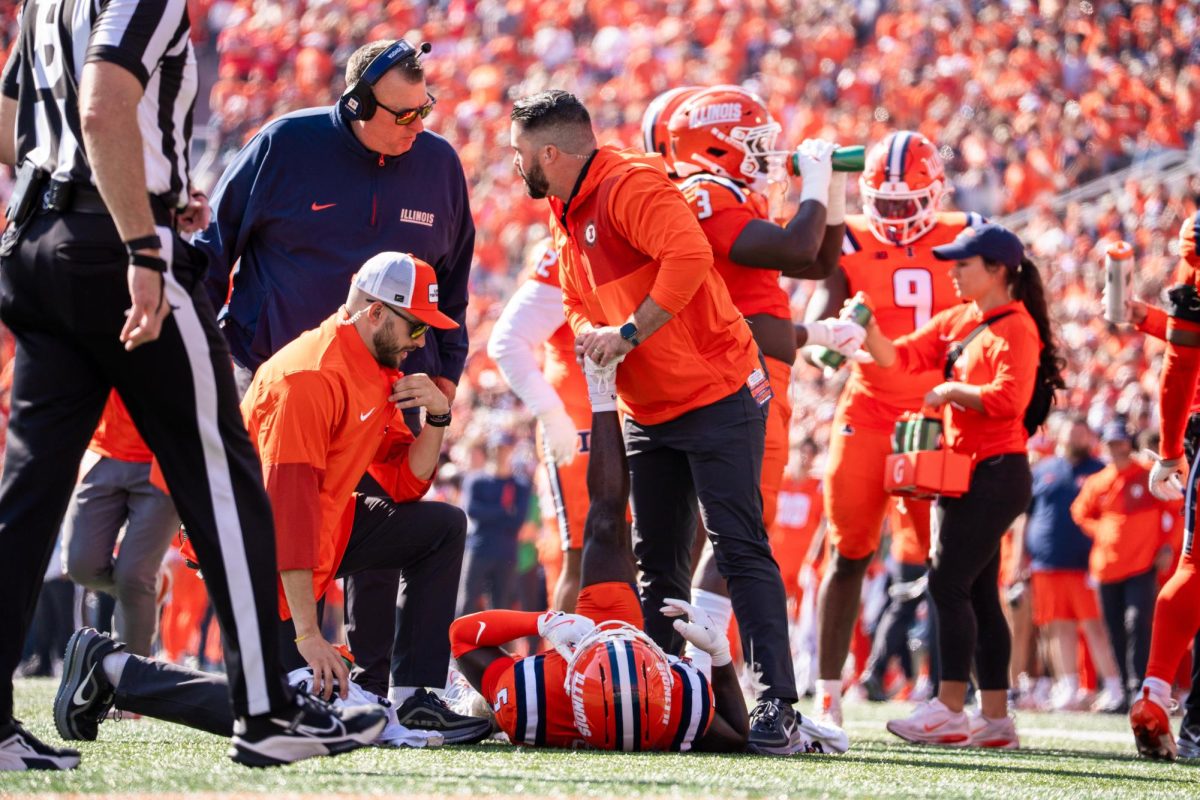Many studies have drawn a conclusive link between cell phone use and drivers being distracted while driving, but researchers at the University also believe driving impairs the driver’s ability to comprehend language.
“A primary question of our research was to find out, ‘Does driving have an impact on our ability to hold a coherent conversation?’” said Ensar Becic, who graduated in 2009 with a ph.D. in psychology and is the lead author of the article. “Driving impairs talking,” published in the journal “Psychonomic Bulletin & Review.”
Becic said that driving has a drastic impact on our ability to comprehend language, since driving requires a cognitive effort and so does constructing sentences.
Gary Dell, a psycholinguist in the department of psychology and co-author of the study, said that these conclusions make sense, as talking is a creative process.
“In general, we have to pay attention when things are not predictable. Talking and using language is not” he said. “When you talk, you put together words you have never put together before.”
Get The Daily Illini in your inbox!
At the same time, Dell said driving is not a predictable process either, because it requires paying attention to the road. Becic and Dell said that in a sense, language and driving are two competing processes.
“When you do one really well it’s at the expense of the other,” Dell said. “It makes sense that driving and language use would compete for our brains’ cognitive ability.”
Dell said that if driving is a hard thing to do, then it should follow that it interferes with talking, but no one had done research on this before.
The experiment was conducted at the Beckman Institute for Advanced Science and Technology at the University in a driving simulator. Both the driver and the passenger wore headphones and listened to a different 15-second short story and then were asked to tell the story they heard to the other person.
According to the study, the driver usually told the story less accurately than the passenger, who viewed the same environment as the driver.
The study states that drivers lose about 20 percent of their ability to retain and retell a story while driving.
The experiment also looked at the impact of the driver talking on hands-free cell phone to someone at a remote location.
There were also no differences between the driver talking on the hands-free phone and talking to the passenger in the car.
“Everyone thinks that you are distracted because your hands are doing things,” said Dell.
“That does not hold true. It’s the talking and holding a conversation about something that is not related to your driving that impacts our ability to drive.”
This is just one of the consequences of modern technology that enables us to talk in situations where we could not have before, Dell said.
Becic said he plans to continue the research that he started here in Minnesota.
The obvious solution to reducing distractions while driving is not talking, he said, but he believes this is impractical because people will still use their cell phones while driving.
“I want to use a controlled speech task while on a specific driving scenario to see (if) when the passenger actually sees the driver is really busy, they might pause,” he said.





